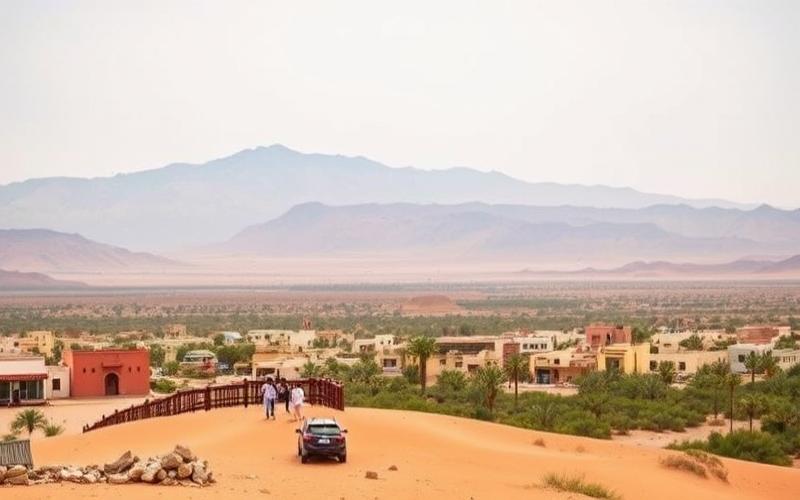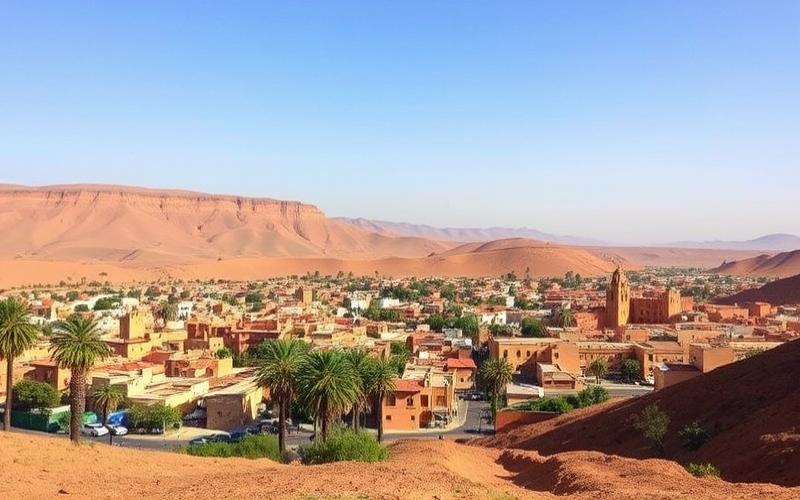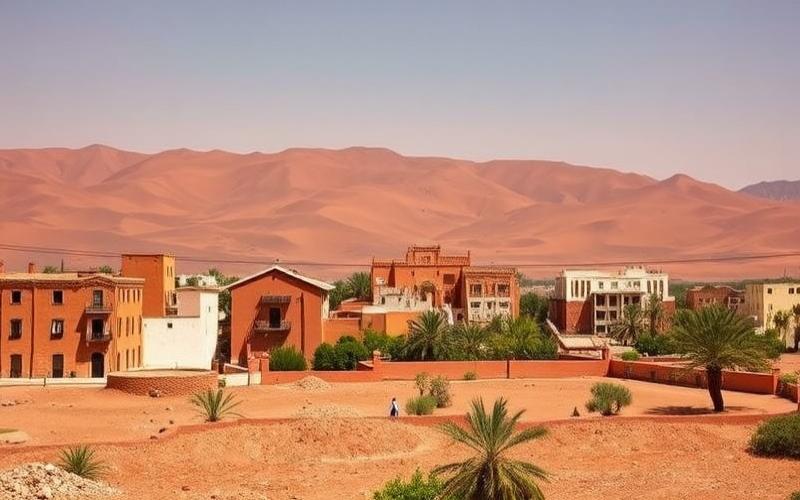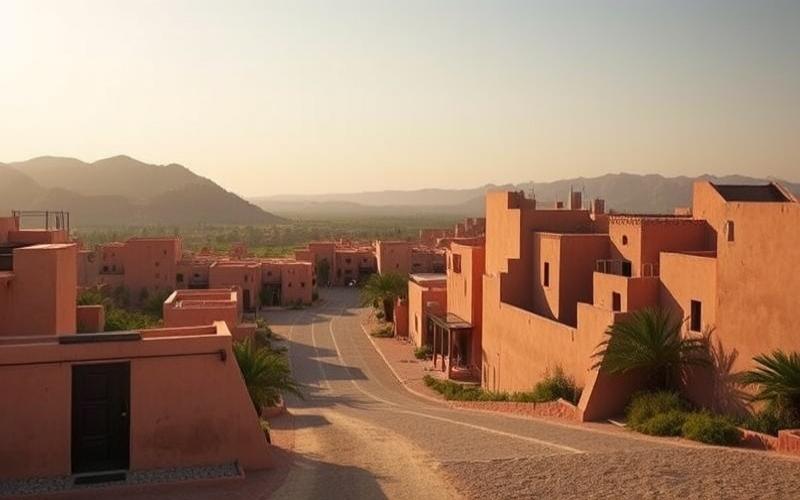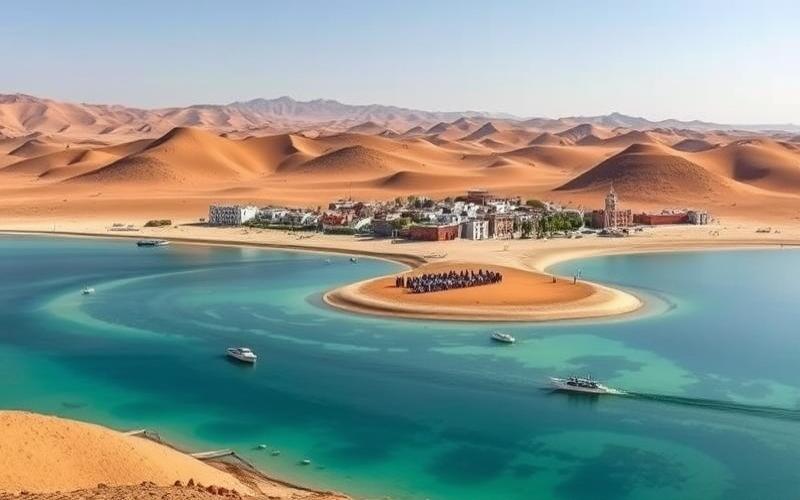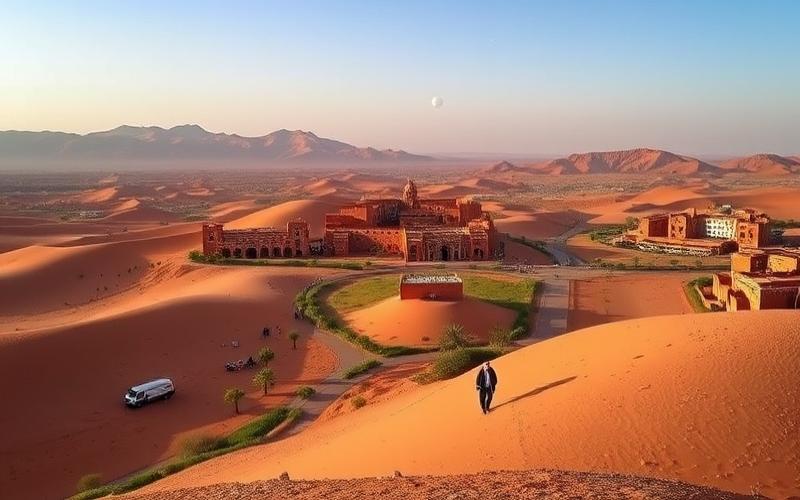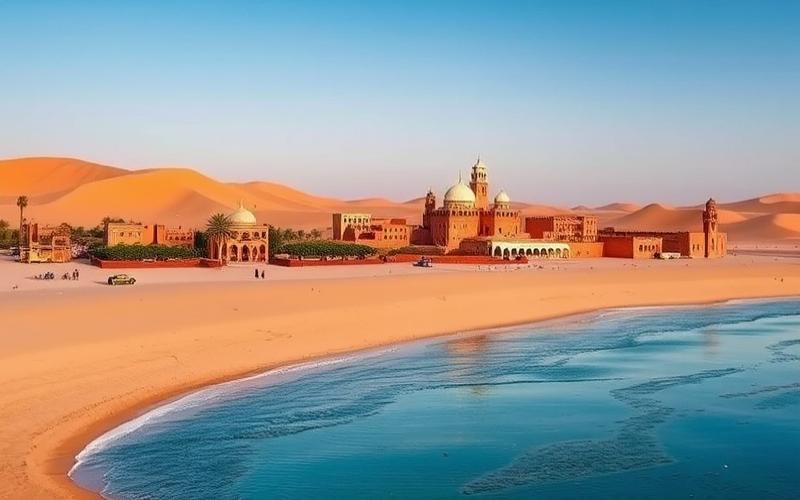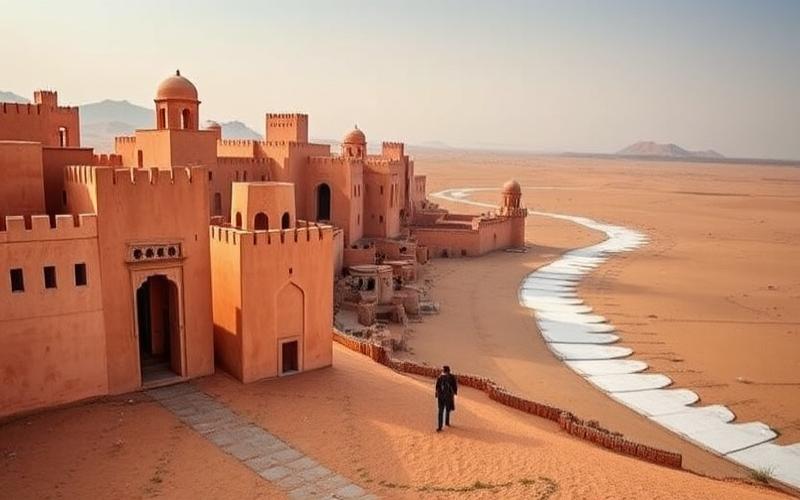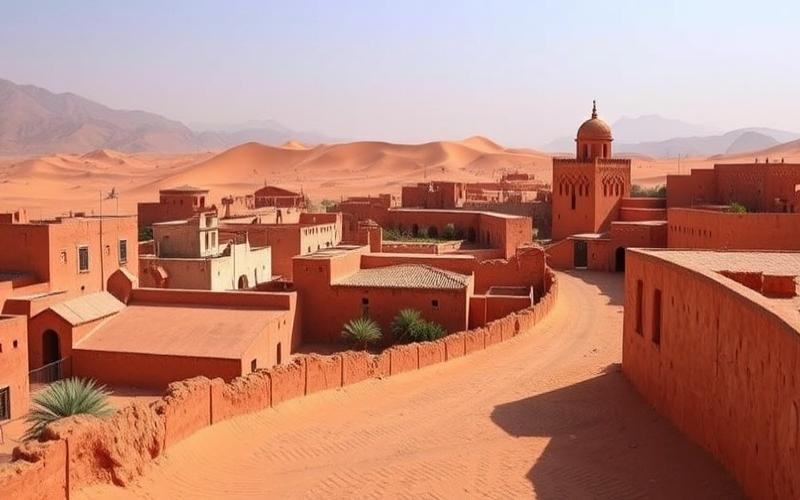
 Published on and written by Cyril Jarnias
Published on and written by Cyril Jarnias
Morocco, with its dynamic economy and strategic location, is attracting an increasing number of foreign investors. Whether you’re considering buying a second home, starting a business, or investing in rental property, it’s crucial to understand the regulations governing foreign ownership in the Cherifian Kingdom. This article will guide you through the essential aspects you need to know to succeed in your investment in Morocco.
A Legal Framework Favorable to Foreign Investors
Morocco has established a particularly welcoming legal environment for foreign investors. Unlike some countries that impose strict restrictions, the Cherifian Kingdom offers great investment freedom to non-residents.
Guaranteed Equal Treatment
Moroccan legislation, particularly Law No. 18-95 and Dahir No. 1-95-213 of November 8, 1995, guarantees equal treatment between foreign and national investors. This fundamental provision means that foreigners enjoy the same rights and protections as Moroccan citizens in investment matters.
Freedom to Do Business Without Constraints
A particularly attractive aspect of Moroccan regulation is the possibility for foreign investors to hold up to 100% of the capital of their Moroccan law company. This freedom applies to the majority of economic sectors, thus offering great flexibility to international entrepreneurs.
Regulated Sectors: Exceptions to Know
Although most areas are open to foreign investment without restriction, there are a few sectors considered sensitive or strategic that are subject to specific regulations. This is particularly the case for agriculture, where limitations may apply to the acquisition of agricultural land by non-residents. It is therefore essential to thoroughly research the particularities of the targeted sector before investing.
Good to Know:
Morocco offers a very favorable legal framework for foreign investors, with guaranteed equal treatment and the possibility of holding 100% of capital in most sectors. However, certain areas like agriculture may be subject to specific restrictions.
Green Light to Invest: A Simplified Approval Process
Morocco has significantly simplified administrative procedures for foreign investors, making the approval process quick and efficient in most cases.
No Prior Authorization Required
For most investments, no prior government authorization is required. This liberal approach allows foreign investors to launch their projects without having to overcome complex bureaucratic obstacles.
Interministerial Investment Commission: For Major Projects
However, there is a notable exception for large-scale projects. Investments exceeding 200 million Moroccan dirhams (approximately 20 million euros) must be approved by the Interministerial Investment Commission. This procedure aims to ensure that major projects align with the country’s economic development objectives.
Regional Investment Centers: Your On-the-Ground Allies
To facilitate administrative procedures and encourage investment, Morocco has established Regional Investment Centers (CRI) in each region. These one-stop shops are designed to support investors throughout the process, from obtaining licenses to company registration.
A Fast Registration Timeline
Once the necessary documents are gathered, company registration in Morocco can be completed in a relatively short time, generally around 21 days. This speed demonstrates the country’s willingness to facilitate the establishment of foreign businesses on its territory.
Good to Know:
The approval process for investing in Morocco is generally simple and fast, with no prior authorization required in most cases. Regional Investment Centers (CRI) are valuable resources to guide foreign investors through their administrative procedures.
Rights and Obligations: What You Need to Know
Investing in Morocco comes with a set of rights and obligations that are crucial to understand to ensure the success of your project.
Property Rights Protection
Moroccan law guarantees strong protection of foreign investors’ property rights. The new investment charter (Law No. 03-22, Dahir No. 1-22-76 of December 9, 2022) reaffirms this fundamental principle, ensuring investors essential legal security for their assets in Morocco.
Freedom to Repatriate Profits
A major advantage for foreign investors is the possibility to freely repatriate their dividends and capital. This provision applies both during the activity period and in case of permanent departure, subject to compliance with current exchange regulations.
Access to International Arbitration
In case of disputes, foreign investors have the option to resort to dispute resolution mechanisms, including international arbitration. This option offers an additional guarantee of investment protection.
Tax and Legal Obligations
Although benefiting from many advantages, foreign investors are required to comply with Moroccan legal and tax obligations. This includes obtaining a Common Business Identifier (ICE), registering with the tax administration, and enrolling in the Trade Register.
Compliance with Exchange Regulations
Investors must comply with exchange regulations issued by the Office des Changes. This compliance is essential to facilitate future fund and profit transfer operations.
Moroccan Labor Law
Foreign companies operating in Morocco are required to respect Moroccan social legislation, particularly concerning employment contracts and social security. Special attention should be paid to specific procedures for recruiting foreign employees.
Good to Know:
Foreign investors in Morocco benefit from strong protection of their property rights and the freedom to repatriate their profits. However, they must comply with local tax and legal obligations, including exchange regulations and Moroccan labor law.
Expert Tips to Succeed in Your Investment in Morocco
To maximize your chances of success as a foreign investor in Morocco, here are some valuable tips to keep in mind:
Strategically Choose Your Location
The choice of your investment location is crucial. Cities like Casablanca, Tangier, or Marrakech offer specific advantages depending on your business sector. For example, Casablanca Finance City offers a privileged tax status for financial and service companies, while Tangier has an attractive free zone for industries.
Take Advantage of Tax Incentives
Morocco offers numerous tax benefits to investors, particularly in certain regions or priority sectors. For example, companies setting up in the Tangier province can benefit from a 50% reduction in corporate tax and professional tax.
Explore Opportunities from International Agreements
Morocco has signed more than 70 bilateral investment promotion and protection agreements. Furthermore, its membership in free trade zones like the African Continental Free Trade Area (AfCFTA) opens interesting prospects for investors targeting the African market.
Build a Competent Local Team
Surrounding yourself with experienced local professionals (lawyers, accountants, tax advisors) is essential to effectively navigate the Moroccan legal and business environment. Their expertise will help you avoid common pitfalls and optimize your investment structure.
Stay Informed About Regulatory Developments
The Moroccan regulatory framework evolves regularly to adapt to investor needs and the country’s development objectives. Stay tuned to legislative changes that could impact your activity, particularly in tax and business law matters.
Cultivate Your Local Relationships
Networking is particularly important in Morocco. Developing a strong network of local contacts can open many doors and facilitate your administrative and commercial procedures.
Consider Cultural Specificities
Although Morocco is very open to foreign investors, it’s important to consider the country’s cultural and religious specificities. A good understanding of these aspects can greatly facilitate your professional interactions and your integration into the local market.
Good to Know:
To succeed in your investment in Morocco, strategically choose your location, take advantage of tax incentives, build a competent local team, and stay informed about regulatory developments. Don’t forget the importance of networking and understanding local cultural specificities.
In conclusion, Morocco offers a particularly favorable environment for foreign investors, with a protective legal framework, simplified procedures, and numerous development opportunities. By following these tips and relying on available local resources, you will maximize your chances of success in this dynamic and promising market.
Disclaimer: The information provided on this website is for informational purposes only and does not constitute financial, legal, or professional advice. We encourage you to consult qualified experts before making any investment, real estate, or expatriation decisions. Although we strive to maintain up-to-date and accurate information, we do not guarantee the completeness, accuracy, or timeliness of the proposed content. As investment and expatriation involve risks, we disclaim any liability for potential losses or damages arising from the use of this site. Your use of this site confirms your acceptance of these terms and your understanding of the associated risks.




